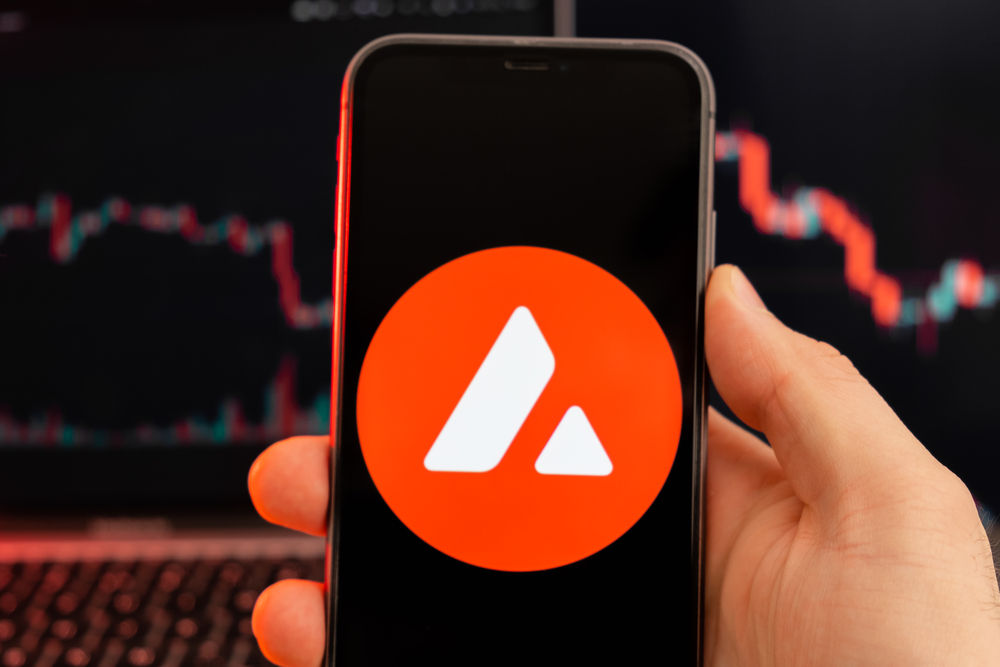Understanding Key Terms in Cryptocurrency
Altcoins are cryptocurrencies that are not bitcoin. They're a lot like alternative coins, but they don't have to be as popular as Bitcoin. Few examples are Ethereum and Luna crypto.
Altcoins
Altcoins are cryptocurrencies that are not bitcoin. They're a lot like alternative coins, but they don't have to be as popular as Bitcoin. Few examples are Ethereum and Luna crypto.
Bull market
A bull market is a period of rising prices. A bull market is characterized by optimism among investors and traders, who anticipate that their investments will continue to rise over time.
Bear market
A bear market is a time in which the price of a security or commodity is falling and there is little to no interest in buying it.
Blockchain
Blockchain is a distributed ledger that's used to record transactions. A blockchain consists of blocks, which contain data about transactions and their relationships. Each block also contains a timestamp and other information that helps you keep track of your assets.
Block
A block is a collection of transactions, which are added to the blockchain. Each block contains the hash of its predecessor and thus can be used as proof of work. To add another transaction, miners must solve an extremely difficult math problem that requires immense amounts of computational power (i.e., electricity).
Block reward
The block reward is a reward given to miners for solving a block. It's the amount of money that each miner gets for solving a block, and it's typically paid on a fixed schedule.
Consensus
A decision-making process used by a blockchain network to validate transactions and add them to the blockchain.
Cryptography
Cryptography is the science of hiding information. It can be used in many ways, from simple text messages to encrypting large amounts of data and even making sure your computer is secure when you're using it.
dApp
A dApp is a decentralized application, which means the code for it runs on the blockchain. In other words, it's an application that lives on top of the Ethereum network and uses smart contracts to operate.
DAO
DAO is a decentralized autonomous organization. This means that it is a type of business entity and investment fund, venture capital fund, or venture capital firm.
Decentralized
Decentralized is a term that means the network is not controlled by any one person, group or company. A decentralized network has no central authority and instead relies on peer-to-peer connections between users. It's similar to how email works: you don't need to use your own computer to send an email because it's being sent across computers all over the world.
DeFi
DeFi is a term used to describe the movement of finance into the blockchain space. It’s also been described as “decentralized finance,” which means it focuses on decentralized applications and protocols rather than centralized systems like banks or governments
DYOR
Do your own research. Don't be afraid to ask questions, or go to the source and find out if you need help.
ERC-20
ERC-20 is a standard for smart contracts. It's a common standard for tokens, but it also has technical requirements that apply to the tokens themselves. In other words, ERC-20 is more than just an Ethereum-based token standard—it's also used as the basis for future blockchain projects.
ERC-721
ERC-721 is a non-fungible token standard. It's an open standard, meaning that anyone can use it and create their own tokens on top of Ethereum. The protocol allows developers to build their own digital assets using existing programming languages and libraries.
EVM
EVM is a virtual machine that executes smart contracts. Ethereum was the first blockchain to implement EVM and it’s now one of the most popular platforms for creating decentralized applications (dapps). The EVM was designed to be Turing complete, which means that it can compute any computer program and run it on Ethereum’s network.
Fiat
Fiat currency is a currency that is issued by a government and not backed by any commodity. It can be thought of as the opposite of cryptocurrencies, which are created using blockchain technology (a type of public ledger). Cryptocurrencies have no central authority or issuer; they're decentralized networks controlled by everyone who uses them.
Fork
A fork is a split in the blockchain. Forks are a way to change the rules of a blockchain, which means that you can create new cryptocurrencies and blockchains with forks.
FOMO
FOMO, or Fear of Missing Out, is a feeling you get when you see something new and exciting happening. FOMO means that everyone else who has seen what's going on seems to be doing the same thing as well—so why shouldn't you?
FUD
Fear, uncertainty and doubt (FUD) is a type of propaganda that uses fear, uncertainty and doubt to manipulate a person or group into making a decision they would not otherwise make.
Fundamental analysis
Fundamental analysis is a method of analyzing a stock's financial statements and other financial and non-financial data to identify trends in the company's business performance. It can be contrasted with technical analysis, which focuses on charting patterns based on past price
Gas
Gas is a unit of measurement for the computational complexity of a block. The gas price (in ETH and XRP) determines how long it will take your transaction to validate. This can be used to determine if your transaction is processed at all, or if it's too slow to get through and you'll need to wait longer for confirmation on the network.
Halving
The halving is a process by which the amount of cryptocurrency mined per block is cut in half.
Hash rate
A hash rate is a measure of the amount of processing power being used to solve a block. This can be thought of as how many "hashes" (bits) are being generated per second, with each hash representing one additional bit in the solution to an equation.
HODL
HODL is a term that was popularized by the Bitcoin community to express the idea that investors should hold onto their cryptocurrency rather than sell it. This stands for "hold on for dear life," and it's something you should do if you're invested in Bitcoin or any other cryptocurrency.
KYC
KYC is a process of verifying the identity of a person. It involves using documents, such as passports and ID cards, to confirm their identity.
KYC is used by cryptocurrency exchanges to make sure that they are dealing with real people who are eligible to trade on their platforms.
Ledger
A ledger is a list of transactions. It's a record of all transactions, including those that occurred before the ledger was created. Ledgers can be public or private and are often used as accounts for businesses and organizations.
Liquidity
Liquidity refers to the ability of a cryptocurrency to be bought and sold in large quantities. Liquidity can also refer to the overall health of an asset, which depends on factors such as demand and supply.
Limit order
A limit order is an order to buy or sell at a certain price. The trader specifies the limit price, which is below the current market price of that currency. If they place their order below that specified price, they will get executed immediately (or sometimes instantly).
Margin trading
Margin trading is a way to buy or sell cryptocurrency using leverage (a margin of up to 10x).
Market cap
Market cap, or the total value of all coins in circulation and available for sale at a given point in time, can be thought of as an indicator of how much currency is being traded. The market cap number represents how much money has been invested into cryptocurrency projects over time.
Mining
Mining is the process of adding transaction records to Bitcoin's public ledger of past transactions. It is done by using computer power.
Mining pool
Mining pool is a group of miners who join together to mine a specific cryptocurrency. Miners are paid in proportion to their contributions, and mining pools can be used to increase the profitability of mining or increase security on the network.
NFT
NFTs are a type of cryptocurrency that allow the ownership and transfer of unique digital assets on the blockchain.
Network fees
Network fees are a way for the network to recover its costs. The sender of a transaction pays the network fee, and this is used to incentivize miners who verify transactions.
Node
A node is a computer that has been tested and approved to connect to the network.
Nodes can be desktop, mobile, or server computers.
Paper wallet
Paper wallets are a type of cryptocurrency wallet that can be used to store and send funds. They're easy to make, and they're not secure.
Private key
A private key is a secret number that allows you to spend your cryptocurrency. It's a long sequence of numbers and letters that looks like this:
Private Key: 039d1a36a1b7e5bb2c2c9a0ebf5fe7d5a8df6323dcf06ccaaa33f35cd544c6
Proof-of-stake
Proof-of-stake is a method of securing a cryptocurrency network and achieving distributed consensus through the use of multiple nodes and blockchains. The process by which new blocks are added to the blockchain is called forging, which requires staking coins as collateral.
Proof-of-work
Proof-of-work (PoW) is a method of securing a cryptocurrency network and achieving distributed consensus through repetitive verification of private keys. The first miner to solve the proof-of-work problem gets to broadcast their block to the network, which is then added to the blockchain as proof that they solved it.
Public key
A public key is a cryptographic key that can be shared with anyone. It's used to encrypt messages, decrypt messages and verify signatures.
Sats or Satoshis
Sats are the smallest unit of a cryptocurrency, and each unit represents 0.00000001 bitcoin (BTC). The word "sat" comes from Satoshi Nakamoto, the person who created Bitcoin in 2008.
Smart contracts
Smart contracts are a new way to handle transactions without a middleman. They're essentially programs that run on blockchain technology, which can be programmed to automatically execute when certain conditions are met or coded into their code.
TA or technical analysis
Technical analysis is the study of past data in order to predict the future price of securities. It's based on the assumption that market participants will act rationally and predictably, acting in their own best interest. Let’s say you would want to do a price prediction of Terra Luna, looking at Terra Classic (LUNC) price and charts will help you determine its future price.
Token
A token is a digital asset that can be used to pay for goods and services. It's like cash, but it's not money—you don't need to provide your bank account information or any other form of identity verification.
Validators
Validators are people or entities that are part of the blockchain network. They verify transactions and blocks on the blockchain, which means they're responsible for maintaining its integrity and security.
Volatility
Volatility is the degree to which prices of assets fluctuate over time. It's measured by standard deviation and variance, which are both measures of how fast an asset's price changes over a period of time.
Wallet
A wallet is a software application that allows you to store, send and receive digital currency. It's like having an account in your bank for all of your crypto assets.
Whale
A whale is a person or company who has a large amount of capital available to invest in the market. They can be individuals, hedge funds, private equity firms and more.
Final Thoughts
These are just some of the common terms and definitions used in the world of cryptocurrency. As the industry continues to evolve, new terms and concepts will continue to emerge. It's important to stay informed and educated to navigate the complex world of cryptocurrency successfully.
In summary, understanding key terms in cryptocurrency is crucial for anyone interested in investing in or working with this emerging technology. It can help you navigate the complex and rapidly evolving market, make informed decisions about your investments, and participate in discussions about the future of finance.
Delegate Your Voting Power to FEED DRep in Cardano Governance.
DRep ID: drep12ukt4ctzmtf6l5rj76cddgf3dvuy0lfz7uky08jfvgr9ugaapz4 | We are driven to register as a DRep by our deep dedication to the Cardano ecosystem and our aspiration to take an active role in its development, ensuring that its progress stays true to the principles of decentralization, security, and community empowerment.DELEGATE VOTING POWER!




